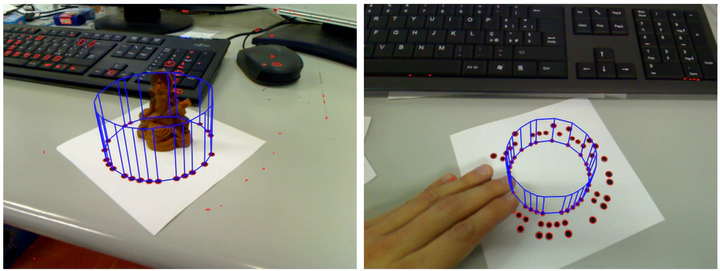
Abstract
Over the last decades fiducial markers have provided widely adopted tools to add reliable model-based features into an otherwise general scene. Given their central role in many computer vision tasks, countless different solutions have been proposed in the literature. Some designs are focused on the accuracy of the recovered camera pose with respect to the tag; some other concentrate on reaching high detection speed or on recognizing a large number of distinct markers in the scene. In such a crowded area both the researcher and the practitioner are licensed to wonder if there is any need to introduce yet another approach. Nevertheless, with this paper, we would like to present a general purpose fiducial marker system that can be deemed to add some valuable features to the pack. Specifically, by exploiting the projective properties of a circular set of sizeable dots, we propose a detection algorithm that is highly accurate. Further, applying a dot pattern scheme derived from error-correcting codes, allows for robustness with respect to very large occlusions. In addition, the design of the marker itself is flexible enough to accommodate different requirements in terms of pose accuracy and number of patterns. The overall performance of the marker system is evaluated in an extensive experimental section, where a comparison with a well-known baseline technique is presented.